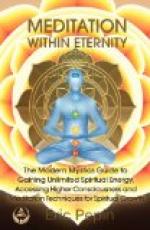These points are all expressed repeatedly in all Emerson’s utterances and mark him as one of the most illumined philosophers, as he was one of the greatest intellects of the last century, or of any other century.
LEO TOLSTOI: RUSSIAN PHILOSOPHER
A strange, lonely and wonderful figure was Tolstoi, novelist, philosopher, socialist, artist and reformer.
Great souls are always lonely souls, estimated by sense-conscious humans. In the midst of the so-called pleasures and luxuries of the senses, a wise soul appears as barren of comfort as is a desert of foliage.
Without the divine optimism that comes from soul-consciousness, such a one could not endure the life of the body: without the absolute assurance that comes with cosmic consciousness, men like the late Count Tolstoi must needs die of soul-loneliness.
From early childhood up to the time of his Illumination Tolstoi indulged in seriousness of thought. Like Mohammed, great and overpowering desire to fathom the mystery of death took possession of him. He was ever haunted by an excessive dread of the “darkness of the grave,” and in his essay, “Childhood,” he describes with that wonderful realism, which characterizes all his works, the effect on a child’s mind of seeing the face of his dead mother. This may be taken in a sense as biographical, although it is not probable that Tolstoi here alludes to the death of his own mother as she died when he was too young to have remembered. He describes the scene in the words of Irteniev:
“I could not believe that this was her face. I began to look at it more closely, and gradually discovered in it the familiar and beloved features. I shuddered with fear when I became sure that it was indeed she, but why were the closed eyes so fallen in? Why was she so terribly pale, and why was there a blackish mark under the clear skin on one cheek?”
A terror of death, and yet a haunting urge that compelled him to be forever thinking upon the mystery of it, is the dominant note in every line of Tolstoi’s writings up to the time which he describes as “a change” that came over him.
For example, when Count Leo was in his 33d year, his brother Nicolai died. Leo was present at the bedside and described the scene with the utmost frankness regarding its effect upon his mind; and again we note that awful fear and hopeless questioning which characterizes the sense-conscious man whose intellect has been cultivated to the very edge of the line which separates the self-conscious life from the cosmic conscious.
This questioning, with the fear and dread and terror of death and of the “ceaseless round of births” and the cares and sorrows of existence was what drove Prince Siddhartha from his father’s court and Mohammed into the mountains to meditate and pray until the answer came in the light of illumination.
It came to Tolstoi through the very intensity of his powers of reason and analysis; through the sword-like quality of mental urge—a much more sorrowful path than the one through the simple way of love and service and prayer.




